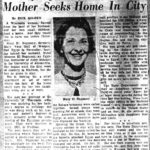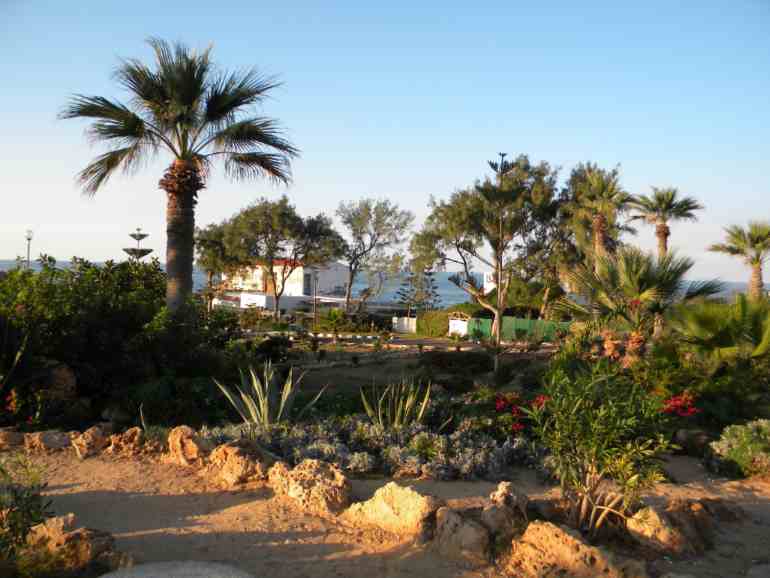(I took this photo of one of the more beautiful parts that still exist in Alexandria, Egypt in 2010–just before the “Arab Spring”)
I name this article “Muslimish” because that is how I felt growing up as an Egyptian American in the United States. My parents raised me without religion; I am neither Christian nor Muslim. Yet I am Muslimish because if you are Middle Eastern, many people identify you as Muslim, even if you are not and never were.
I was born in Alexandria, Egypt to an American mother and an Egyptian father who had met while attending the University of Madison-Wisconsin. My mother, who had grown up in a fanatic religious household in a tiny Wisconsin town told me long after her divorce that a good deal of motivation for marrying my father was in rebellion against her mother, as well as to experience such an exotic culture of Egypt. After my father completed his PhD and my mother earned her B.S. in Sociology, they married and moved to Egypt, where they lived for seven years. The Egypt she described to me during the time of my birth was so different from the Egypt I first saw as an adult in 2010. At that time, Alexandria—Egypt–were cosmopolitan, with a diverse mix of cultures and ethnicities. She told me it was rare to see women wearing the traditional hijab and early family photographs prove her memory correct. The female family members I met in 2010 were lovely, welcoming people but they wore traditional hijabs. This news shocked my mother.
I grew up knowing I was half Egyptian but I also knew I was a quarter French and a quarter Dutch but people overlooked those aspects of my heritage. I grew up believing there was something wrong about being Egyptian: I hated my last name, I hated my frizzy hair, I hated that I was different, and I loathed myself. At times I did experience overt racism and discrimination, but more often covert racism was all around me. This may not have been the case had our parents moved to a city where there were other Middle Eastern people to identify with but in Bozeman, Montana, that was not the case. Bozeman has changed quite a bit, becoming a rapidly growing community because of its proximity to ski resorts and the gorgeous Yellowstone National Park. During my childhood, it was a sleepy community comprised nearly entirely of white Americans, most of whom were at least third generation Montanans who were very conservative.
My parents never considered that moving to such a white bread community might have detrimental effects on their two children. We were outsiders, people didn’t understand my father’s broken English, they didn’t understand why he looked African American to them, and my Egyptian last name (El-Negoumy) was difficult to pronounce and easy to make fun of. But this isn’t a pity party for a tough childhood. We all have tough childhoods in one way or another. I am writing this to shed light onto why some Middle Eastern Americans grow up feeling isolated. Even though others who knew them might not know the discrimination and racism they feel, I know it because I felt it as well. If we can understand the thinking of people who grow up feeling so disenfranchised, then perhaps we can stop that thinking, prevent more tragedies, and bring more tolerance and understanding. That is my purpose.
But my story starts long before I was attending U.S. schools. To make a long story short, the Egyptian military overthrew King Farouk’s government and the newly ‘elected’ authoritarian regime of Egyptian President Gamal Abdel Nasser decided to nationalize the Suez Canal. Until that point, the joint venture of British and French forces had operated the canal. This brought on instant heat from Great Britain, France, and Israel. That’s when the bombing began.
My mother decided to stay on in Egypt to be with her husband but when the bombs started falling close to our home, she went to the American Embassy who told her, “Lady, you need to get the hell out of here.” Without my father (who was unable to leave Egypt), she packed a few bits of nonsense into one small bag and left Egypt immediately, aboard a U.S. Navy ship bound for Naples, Italy. Through the kindness of strangers (and help from the U.S. government), my mother, sister and I returned to America as we were all American citizens because of my mother’s status as a U.S. citizen since birth.
When we arrived in the U.S., we had nowhere to go but my mother’s home where my grandmother—still a fanatic Christian lived with my schizophrenic aunt. Not an ideal place for any child but especially one torn from her mother’s arms at such a tender age of six months and left with people who were not mentally stable to effectively bond and nurture me, even though I don’t believe my mother had much of a choice.
I never knew that until very recently. I have always had an excellent memory and I have many mental snapshots of my early childhood. For example, one that pertains to this is remembering my outstretched arms, screaming for my mother, as she had to take a bus away from me to her job in Madison, Wisconsin. She was able to take my older sister with her but no one was willing to help her with a 6-month-old baby. I am attaching the original newspaper story here so you may read for yourself what my mother, my sister, and I went through (I apologize for the poor quality). My mother shared this article with me a few years ago and when she did, it shed much light on the issues I deal with even today. I cannot stand the sound of thunder or fireworks during the Fourth of July celebrations, most likely due to PTSD that resulted from those bombings so close to our house. I have always had abandonment issues, which I’m sure stems from my mother having to leave me at a time when we should have been bonding and successfully reaching that important stage of Trust over Mistrust (Erik Erikson’s theory of Psychosocial Development).

In no way do I want to compare my own plight so many years ago to the suffering of the many refugees of today. Nor as I mentioned above is this a ploy for sympathy for a tough childhood because we all have tough childhoods in one way or another. Life is hard for all of us. But how we choose to view our lives is something that we have far more control over.
My goal is to begin a conversation on how the isolation of Middle Eastern Americans can start. Unless we can understand that component, we will continue to see homegrown attacks against the country we all love.
I will go into my experiences as a child growing up in rural Montana in Part II of Muslimish. Until then,
Peace,
Melinda

